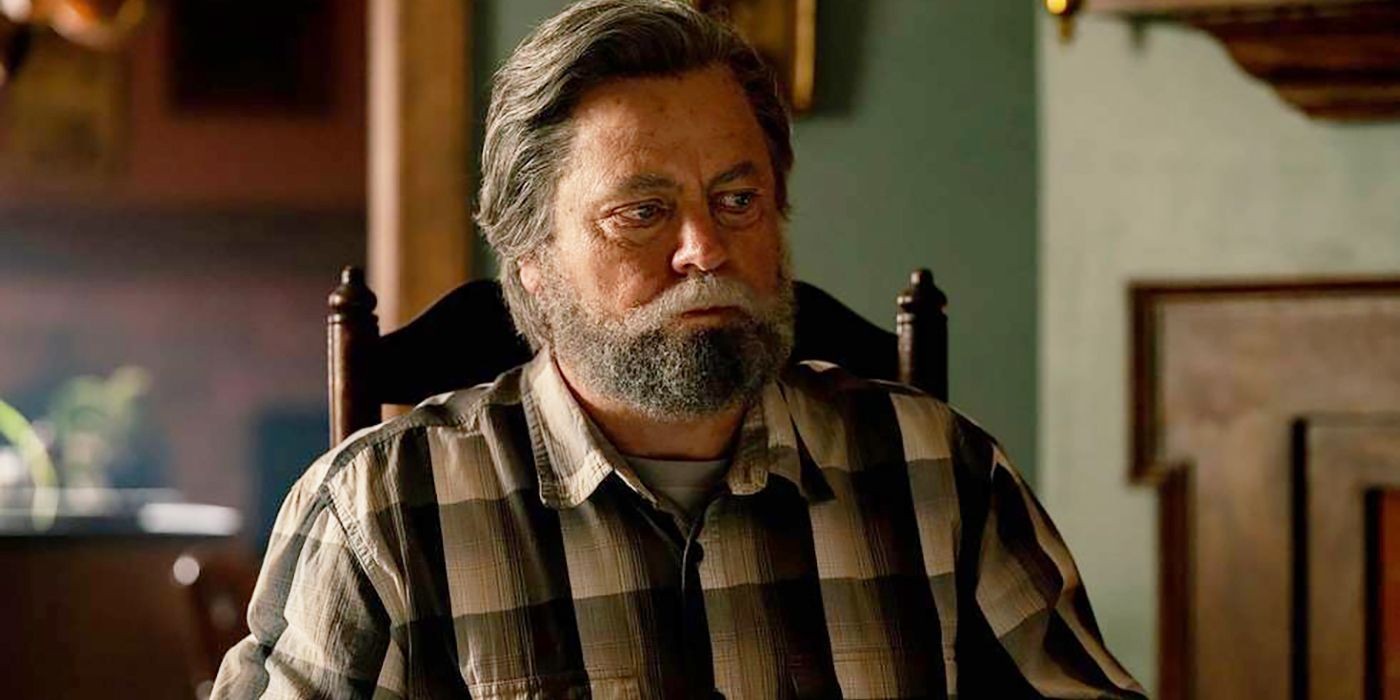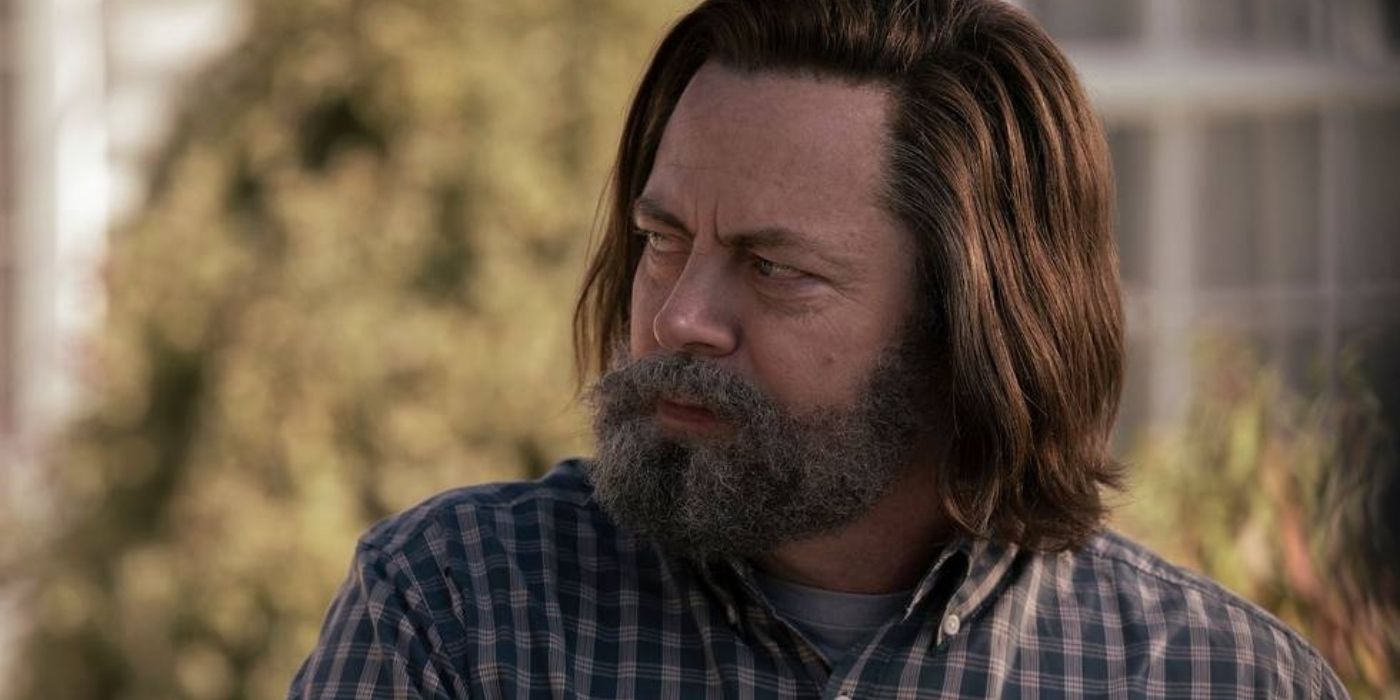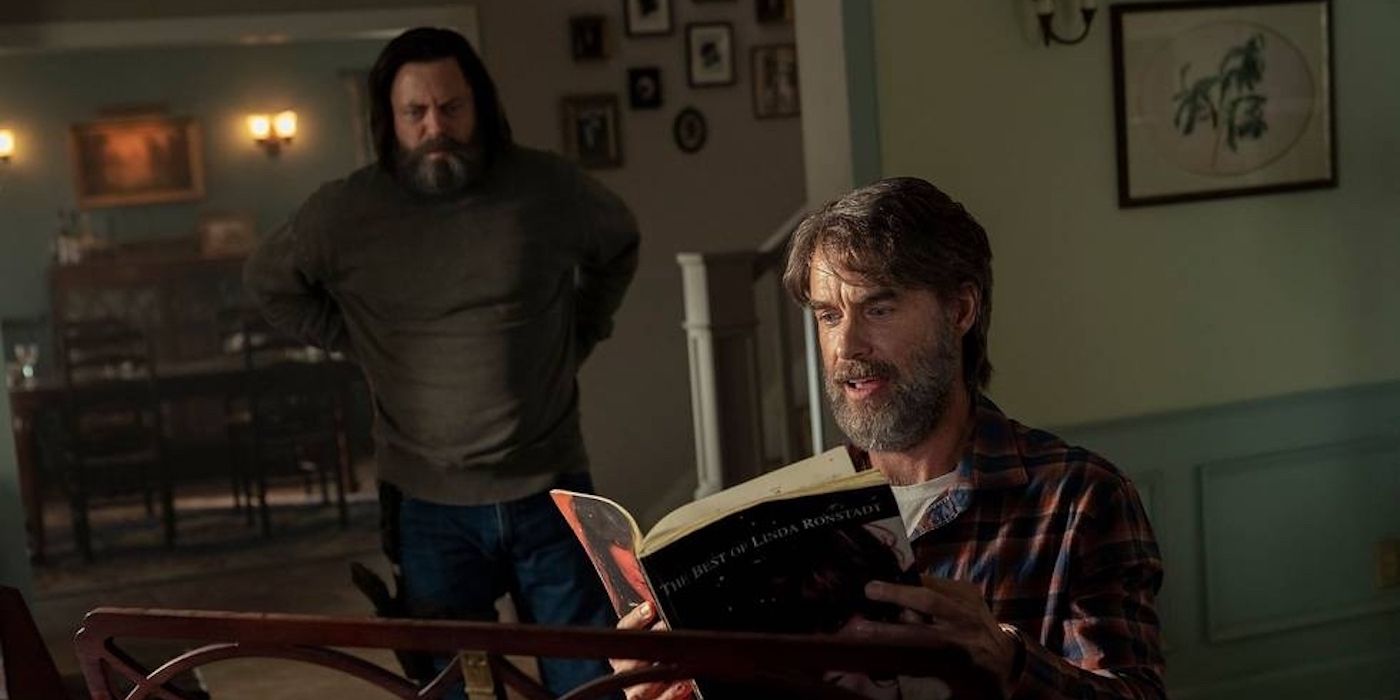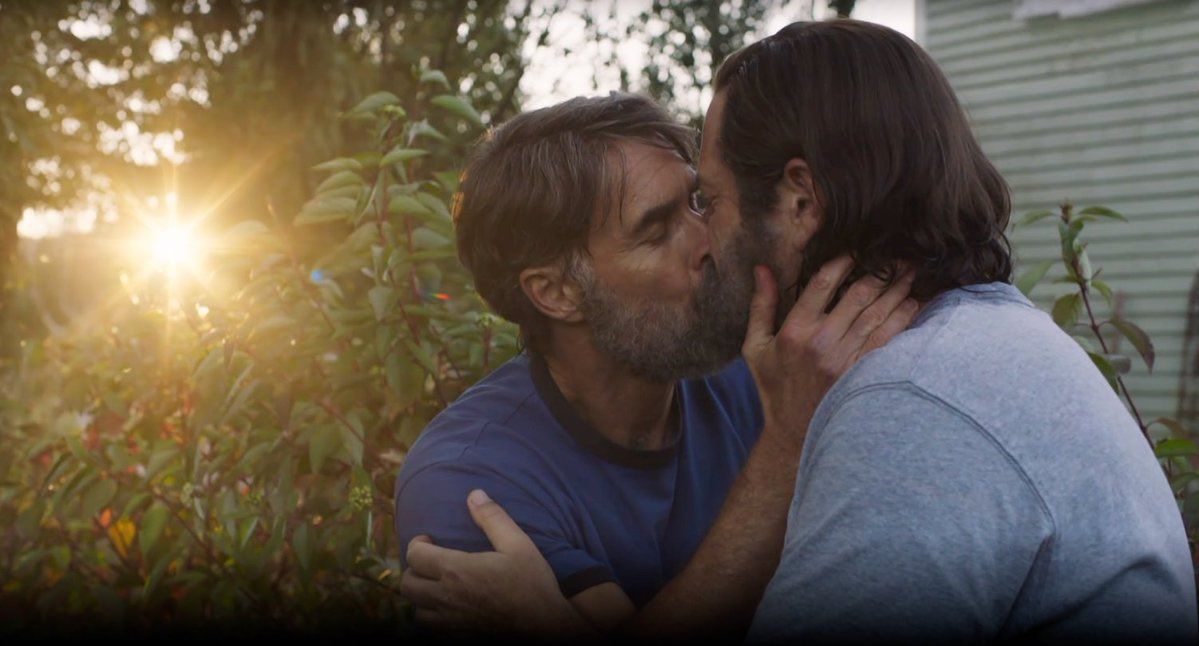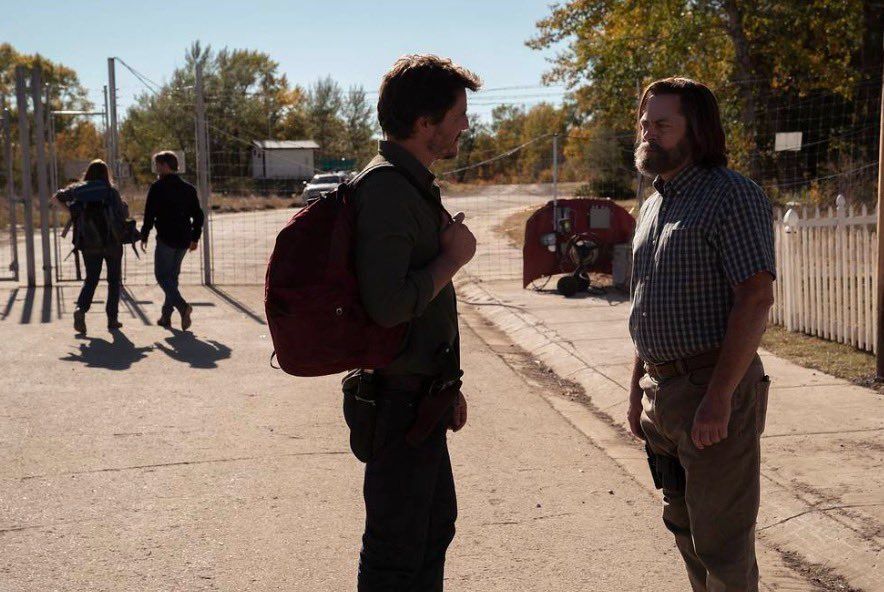Editor's Note: The following contains spoilers for The Last of Us Episode 3.If you didn't cry watching this week's episode of The Last of Us, either you have a furry heart, or you watched it wrong. All kidding aside, though, "Long, Long Time" was a masterpiece that seemed written by television deities themselves to make the average viewer dehydrate by watching a beautiful and compelling story about love, loneliness and self-acceptance. The backstory of Bill (Nick Offerman) and Frank (Murray Bartlett) was something the fans had been yearning to know more about for almost a decade, and the series delivered it in an extremely emotional and unexpected way.
To give us that, the adaptation by HBO had to do some major changes to the story told in the original game in 2013, but, once again, for the better. Back then, Bill was living by himself in a small town he rigged to be a big clicker booby-trap, and it's only implied that he and Frank were once a couple. Only when Ellie (Bella Ramsey) and Joel (Pedro Pascal) run away from that town in Bill's car and the girl finds an adult magazine in the backseat is it made clear that Bill was in fact gay, and his character immediately starts to make sense. Cut to 2023, and, in the series, we finally get to learn more about the couple, and Bill makes even more sense now.
Bill Masked His True Self By Being Angry At The World
Everybody led completely different lives before the cordyceps outbreak. People have gone through a lot in the twenty years between the end of the world and when The Last of Us takes place. The world changed, and people changed with it, usually for the worst. But not everybody, though. When we meet Bill, he's in a very dark place - literally. In a bunker he built beneath the basement in his mother's house, he's casually watching all of his neighbors board FEDRA trucks to what they think is relocation to the Boston Quarantine Zone, but are really going to be executed and dumped in a mass grave, found years later by Joel and Tess (Anna Torv).
Bill was actually happy that the world came to an end. A subscriber to many conspiracy theories, twisted ideologies, and surrounded by guns, he built what he thought was the perfect hideout for when everything goes South. He just didn't get that he was hiding from himself behind all that, really. We learn that the house he lived in belonged to his mother, and everything pointed to him being a rather oppressed young man growing up. That's usually how people become lone wolves like he was, especially men trying to mask their insecurities behind a shell they think it's impenetrable.
It should be clear by now that Bill was evidently a closeted gay man, who built a whole persona around hiding his true nature. When he describes himself as a "survivalist" to Joel, it's not just about, well, surviving the apocalypse, but also going through a life of denying who he was. Not really living, then, just surviving. He felt like the world didn't allow him to understand himself, so he closed himself off. Eventually, though, everybody needs to come out, be it from a closet or from actual hiding. In many cases, coming out is not just telling people, but mainly understanding yourself and being comfortable with who you are.
Bill didn't have that before the outbreak, and fostered anger towards the world to hide his nature. He mentioned to Frank he only had sex once, with a girl, a long time before, which shows how he tried to fit into who he was expected to be, but couldn't, really. Only when Frank showed up, and there was literally no one else around, did Bill feel comfortable enough to come out. He took Frank in because he was allowed to be himself, and not fit into any labels. And Frank saw him for who he was, which is all that's required, really.
Leaning Into Bill and Frank's Love Benefits The Last of Us
So far, The Last of Us has deviated from the original game in many moments, but it kept the same basic premise: it's by keeping our humanity that we will overcome the end. Love is an important part of that idea and, frankly, there's not much going around these days. We've seen grief, discovery and sacrifice a lot on these first three episodes of the series, but actual love was a first, the romantic kind.
Having someone to live for makes all the difference for most people, especially those who hid themselves so deep like Bill. We don't know who Frank was before meeting him, but we do know he was able to read Bill like a book because Bill's story is the same one that thousands of people are going through every day right now.
Of course, The Last of Us is no Heartstopper, so it's only natural that its approach was a more nuanced and adult one, with plenty of dialogue with our own world. After being closed off for so long, Bill was only able to allow Frank out of that hole because he understood the importance of helping people in the context they were in. He didn't want to take Frank in at first, but it was that feeling of humanity that allowed him to let his walls down.
It helps a lot if the partner in question is someone like Frank, who's as thoughtful as attentive. Before him, Bill allowed himself very little, like cooking for himself and watching clickers and stalkers get caught in his tripwires, like a post-apocalyptic version of Ron Swanson from Parks and Recreation (probably an intentional gag since both characters are played by Offerman). But that doesn't mean he actually enjoyed his live. Frank sees the dust around the house, and that's a perfect metaphor for Bill himself. That house, like Bill himself, needed attention, and Frank was willing to give it. "Paying attention to things, it's how we show love," he says to try and convince his partner to liven up the fenced cul-de-sac they lived in. Bill had always neglected attention, it never had room in his life because of who he was trying so hard not to be. By the end, he allowed himself to pay so much attention, that he even sorted Frank's medicine using rhymes.
"Long, Long Time" told a story of self-acceptance in a unique and timely way. "I was never afraid before you showed up" is maybe the most beautiful line in the series so far. It speaks volumes about what love really is, the willingness to be vulnerable next to someone, allowing that person to become your weak spot by being afraid to lose them. There's no context with more vulnerability than the end of the world, and we're glad that Bill allowed himself his - and that we got to watch such a beautiful story.

